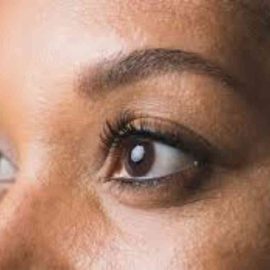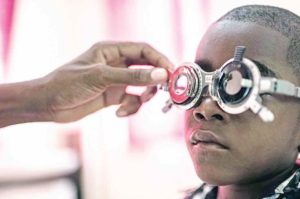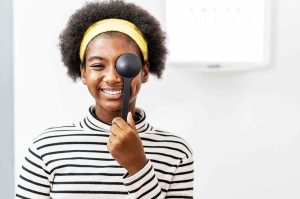Key Factors to Consider When Choosing Eye Allergy Medications in Nigeria
Eye allergies, also known as allergic conjunctivitis, are common conditions that affect many people in Nigeria and around the world. They are caused by exposure to allergens such as pollen, dust, animal dander, mold, or cosmetics, which trigger an immune response in the eyes. The symptoms of eye allergies include itching, redness, watering, swelling, and sensitivity to light. These symptoms can interfere with daily activities and affect the quality of life of those who suffer from them.

Fortunately, there are various medications available to treat eye allergies and provide relief from the discomfort. However, not all medications are equally effective or suitable for everyone. Therefore, it is important to know how to select the most appropriate eye allergy medication for your specific needs and preferences. Here are some essential tips to help you with this process:
1. Identify the type and severity of your eye allergy
The first step in choosing the right eye allergy medication is to identify the type and severity of your eye allergy. There are two main types of eye allergies: seasonal and perennial. Seasonal eye allergies occur only at certain times of the year, usually during spring or autumn, when the pollen count is high. Perennial eye allergies occur throughout the year and are caused by constant exposure to indoor allergens such as dust mites, pet dander, or mold.
The severity of your eye allergy can range from mild to severe, depending on the frequency and intensity of your symptoms. Mild eye allergies may cause occasional itching and watering, while severe eye allergies may cause persistent inflammation and discomfort that affect your vision and daily functioning.
Knowing the type and severity of your eye allergy can help you narrow down your options and select the most suitable medication for your condition.

2. Consult your doctor or pharmacist
The second step in choosing the right eye allergy medication is to consult your doctor or pharmacist. They can help you diagnose your eye allergy, rule out any other eye problems, and prescribe or recommend the best medication for you. They can also advise you on the proper dosage, frequency, duration, and side effects of the medication, and monitor your progress and response to the treatment.
Your doctor or pharmacist can also help you avoid any potential drug interactions or contraindications with other medications or health conditions that you may have. For example, some eye allergy medications may not be suitable for people with glaucoma, diabetes, high blood pressure, or thyroid disease. Therefore, it is important to inform your doctor or pharmacist of your medical history and any other medications or supplements that you are taking.
3. Choose the right formulation and delivery method
The third step in choosing the right eye allergy medication is to choose the right formulation and delivery method. There are different forms of eye allergy medications, such as eye drops, gels, ointments, tablets, or capsules. Each form has its advantages and disadvantages, depending on your preference and convenience.
Eye drops are the most common and popular form of eye allergy medication. They are easy to use, fast-acting, and effective in relieving the symptoms of eye allergies. However, they may also cause some side effects, such as burning, stinging, irritation, or blurred vision. They may also require frequent application, usually several times a day, and may not last long in the eye. Therefore, they may not be suitable for people who wear contact lenses, have dry eyes, or need long-term relief.
Gels and ointments are thicker and more viscous than eye drops, and they provide longer-lasting lubrication and protection for the eyes. They are especially useful for people who have dry eyes or need nighttime relief. However, they may also cause more blurring of vision and may be more difficult to apply. They may also interfere with the absorption of other eye medications, such as eye drops. Therefore, they should be used with caution and under the guidance of your doctor or pharmacist.
Tablets and capsules are oral forms of eye allergy medication that work by blocking the histamine receptors in the body, which are responsible for the allergic reaction. They are convenient and easy to take, and they can provide systemic relief for the whole body, not just the eyes. However, they may also cause some side effects, such as drowsiness, dry mouth, headache, or nausea. They may also take longer to work and may not be as effective as eye drops in targeting eye symptoms. Therefore, they should be used as a supplement or alternative to eye drops, not as a replacement.
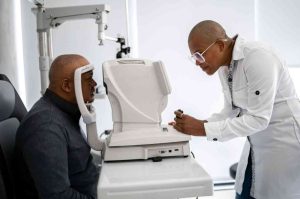
4. Compare the different types and brands of eye allergy medications
The fourth step in choosing the right eye allergy medication is to compare the different types and brands of eye allergy medications. There are two main types of eye allergy medications: antihistamines and mast cell stabilizers. Antihistamines work by blocking the histamine, which is the chemical that causes the allergic reaction. Mast cell stabilizers work by preventing the release of histamine and other inflammatory substances from the mast cells, which are the cells that store and release histamine.
Antihistamines are more effective in relieving the itching and redness of eye allergies, while mast cell stabilizers are more effective in preventing and reducing the swelling and watering of eye allergies. Some eye allergy medications combine both antihistamines and mast cell stabilizers to provide dual action and greater relief. However, some people may be allergic or sensitive to certain ingredients or preservatives in some eye allergy medications, so it is important to read the labels and check for any warnings or precautions before using them.
There are also different brands and generic versions of eye allergy medications, which may vary in their price, quality, availability, and customer reviews. Some of the most popular and reputable brands of eye allergy medications include:
Bausch + Lomb Alaway Antihistamine Eye Drops: This is an over-the-counter eye drop that contains ketotifen, a potent antihistamine that provides fast and long-lasting relief for eye allergies. It can be used up to twice a day and is suitable for adults and children over 3 years old. It has a high rating and positive feedback from customers who have used it.
ALCON Pataday Once Daily Relief: This is an over-the-counter eye drop that contains olopatadine, a powerful antihistamine and mast cell stabilizer that provides 24-hour relief for eye allergies. It can be used once a day and is suitable for adults and children over 2 years old. It has a high rating and positive feedback from customers who have used it.
Systane Ultra Lubricant Eye Drops: This is an over-the-counter eye drop that contains polyethylene glycol and propylene glycol, which are ocular lubricants that moisturize and soothe the eyes. It can be used as needed and is suitable for people who have dry eyes or wear contact lenses. It has a high rating and positive feedback from customers who have used it.
TheraTears Extra Dry Eye Therapy: This is an over-the-counter eye drop that contains sodium carboxymethylcellulose, which is an ocular lubricant that hydrates and protects the eyes. It can be used as needed and is suitable for people who have mild eye allergies or dry eyes. It has a high rating and positive feedback from customers who have used it.
Bausch & Lomb Opcon-A Allergy Eye Drops: This is an over-the-counter eye drop that contains naphazoline and pheniramine, which are a decongestant and an antihistamine, respectively. They work together to reduce the redness and itching of eye allergies. It can be used up to four times a day and is suitable for adults and children over 6 years old. It has a high rating and positive feedback from customers who have used it.
Naphcon-A Eye Drops: This is an over-the-counter eye drop that contains naphazoline and pheniramine, which are a decongestant and an antihistamine, respectively. They work together to reduce the redness and itching of eye allergies. It can be used up to four times a day and is suitable for adults and children over 6 years old. It has a high rating and positive feedback from customers who have used it.
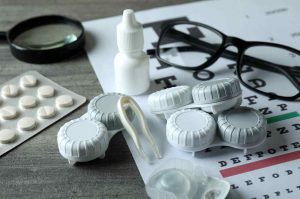
5. Try different eye allergy medications and see what works best for you
The fifth and final step in choosing the right eye allergy medication is to try different eye allergy medications and see what works best for you. Everyone’s eyes and allergies are different, so what works for one person may not work for another. Therefore, it is important to experiment with different eye allergy medications and see how they affect your symptoms, comfort, and satisfaction. You may need to try several eye allergy medications before you find the one that suits you the best.
You should also keep track of your eye allergy symptoms and medication use, such as the frequency, duration, severity, and triggers of your symptoms, and the name, dose, time, and effect of your medication. This can help you monitor your progress and response to the treatment, and identify any patterns or changes that may occur. You can use a journal, a calendar, a spreadsheet, or an app to record your eye allergy data.
You should also communicate with your doctor or pharmacist regularly and update them on your eye allergy condition and medication use. They can provide you with feedback, guidance, and support, and adjust your treatment plan if needed. They can also help you manage any side effects, complications, or emergencies that may arise from your eye allergy medication use.
Conclusion
By following these five essential tips, you can select the most suitable eye allergy medication for your needs and preferences, and enjoy a more comfortable and symptom-free life. Remember, eye allergies are treatable and manageable, and you do not have to suffer from them.

